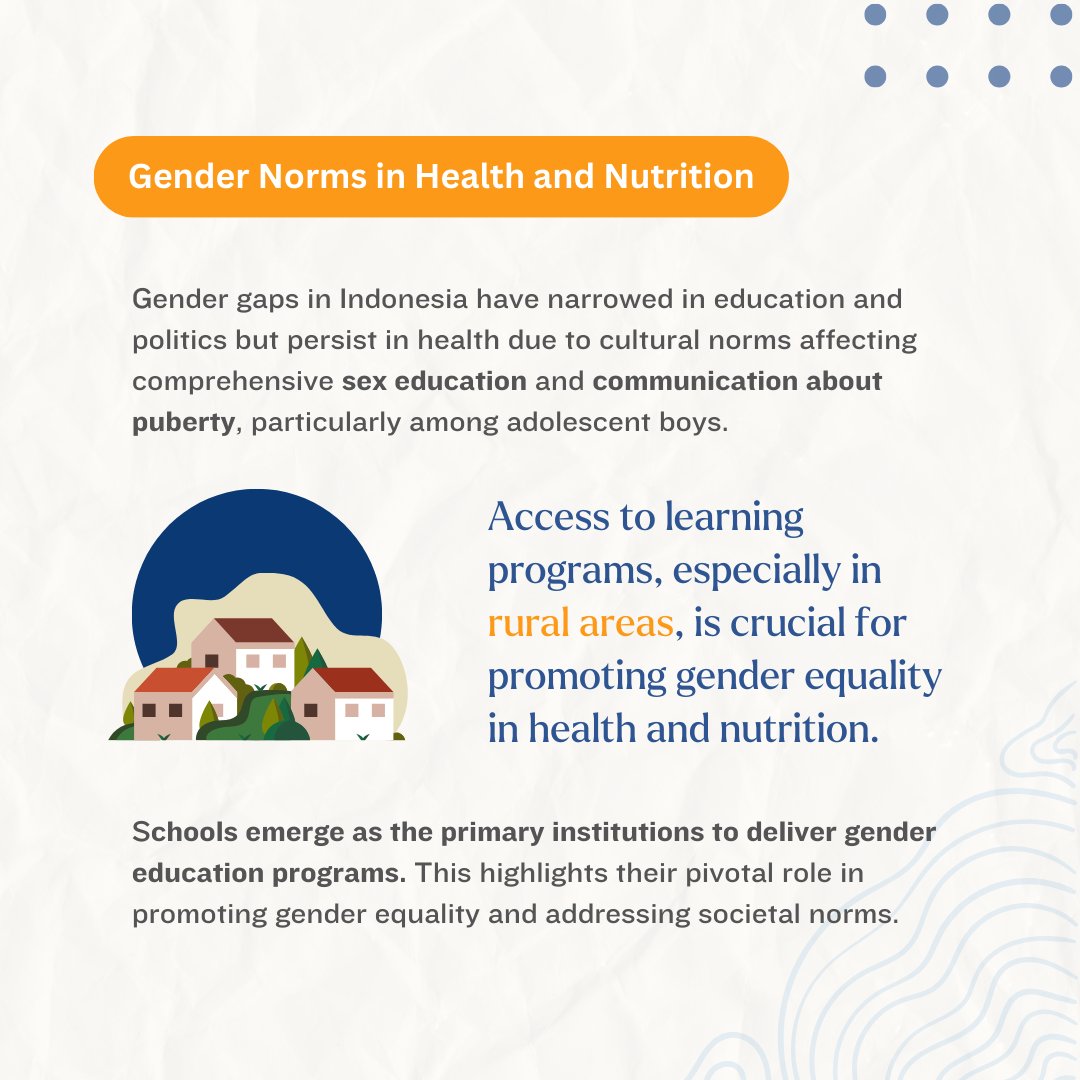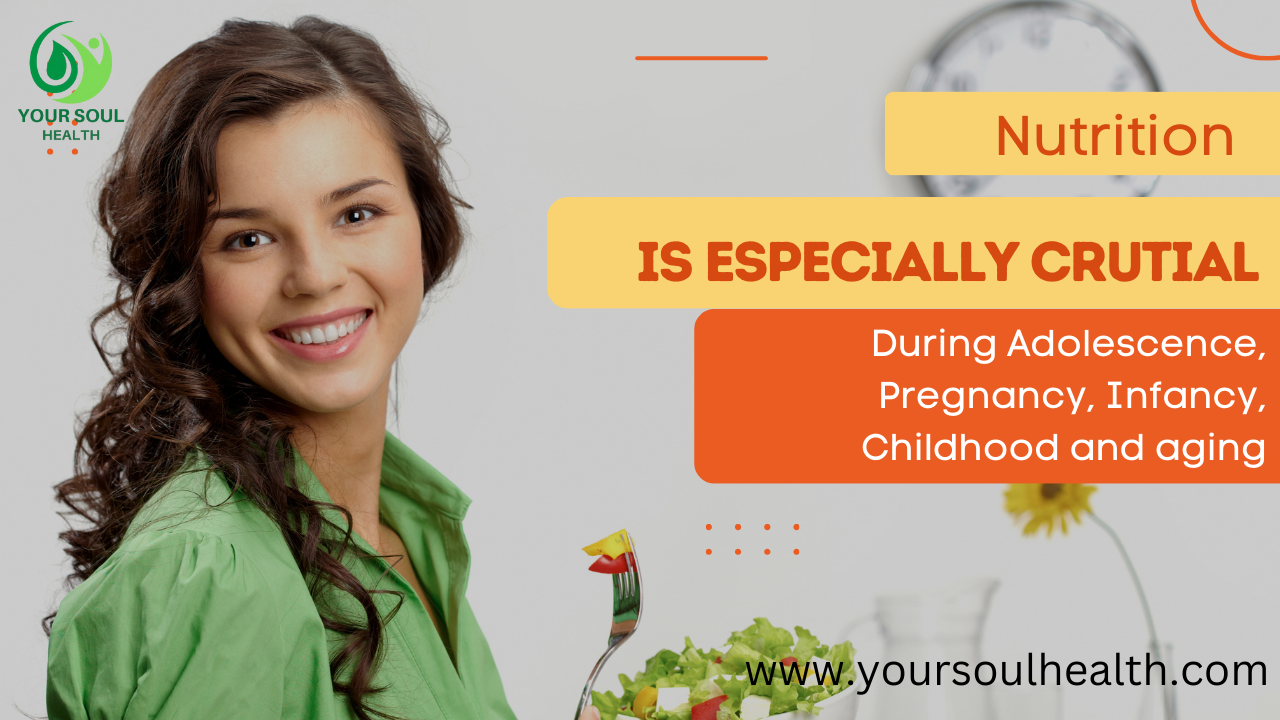Nutrition is especially crucial during key life stages such as pregnancy, infancy, childhood, adolescence, and aging. Proper nutrition supports growth, development, and overall health, helping to prevent chronic diseases and improve quality of life. Ensure a balanced diet rich in essential nutrients to meet the body’s specific needs during these critical periods. Proper nutrition is essential during all stages of life for optimal health and well-being.

The Importance Of Nutrition
Nutrition is essential for overall well-being, providing the body with the necessary energy, vitamins, and minerals to function optimally.
However, during [specific event or situation], such as recovery from illness or pregnancy, nutrition becomes even more crucial, as the body’s requirements are heightened.
Impact On Health
Good nutrition plays a pivotal role in maintaining good health, as it helps prevent chronic diseases and boosts the immune system. By consuming a balanced diet, individuals can reduce the risk of developing conditions such as heart disease, diabetes, and obesity.
Role In Daily Functioning
Nutrition directly impacts daily functioning by providing the energy and nutrients needed for bodily processes. A well-balanced diet promotes physical and mental well-being, enabling individuals to perform daily tasks efficiently and stay alert and focused.

Nutritional Needs During
Optimal nutrition during pregnancy is crucial to supporting the health of both the mother and the developing baby. Understanding the Nutritional Needs During this critical time, we can ensure the well-being of both.
Caloric Requirements
Pregnant women need extra calories to support the growth and development of the fetus.
Macro And Micronutrient Needs
Essential macros include proteins, carbs, and fats. Micronutrients, like vitamins and minerals, are vital for overall health.
Challenges Of Maintaining Good Nutrition During
A healthy diet is essential to our general health and well-being. However, maintaining good nutrition during [insert specific situation] can be challenging. In such circumstances, it becomes even more crucial to make conscious choices regarding our diet. Let’s delve into some of the common challenges individuals face when it comes to accessing fresh food and meal preparation.
Access To Fresh Food
Access to fresh food is often a significant challenge during [insert specific situation]. This can be due to various factors, such as the limited availability of grocery stores, a lack of transportation, or living in food deserts—areas where nutritious food options are scarce. When fresh produce and whole foods are not easily accessible, individuals may turn to processed or unhealthy food options, which can negatively impact their nutritional intake.
Some common access-related challenges include:
- Limited availability of grocery stores in the vicinity
- Higher cost of fresh and healthy food options
- Lack of transportation to reach grocery stores or markets
- Living in areas identified as food deserts with no or limited access to nutritious food
Overcoming these challenges requires creativity and resourcefulness. Here are some helpful strategies:
- Research and identify grocery stores or markets that offer affordable, fresh produce.
- Explore local initiatives such as community gardens or farmer’s markets.
- Consider joining a food co-op or community-supported agriculture (CSA) program for a steady supply of fresh food.
- Utilize online grocery delivery services to bring fresh produce right at your doorstep.
Meal Preparation
Meal preparation itself can be a hurdle when trying to maintain good nutrition during [insert specific situation]. Factors such as limited time, lack of cooking facilities, or unfamiliarity with nutritious recipes can make it difficult to prepare well-balanced meals.
Here are some common meal preparation challenges during [insert specific situation]:
| Lack of time | Limited cooking facilities | Unfamiliarity with nutritious recipes |
|---|---|---|
| Balancing work and other responsibilities leaves little time for meal preparation. | Limited access to a fully equipped kitchen, which can affect the variety of meals that can be prepared. | Not knowing how to create delicious and nutritious meals with the available ingredients. |
Despite these challenges, it is still possible to ensure good nutrition by adopting the following approaches:
- Plan meals in advance to save time and ensure a balanced diet.
- Explore simple and quick cooking methods like stir-frying or steaming to overcome limited cooking facilities.
- Utilize online resources, recipe blogs, and cooking apps to discover nutritious recipes that suit your taste and dietary requirements.
- Consider meal prepping on weekends or free days to have ready-to-eat, healthy meals throughout the week.
By being aware of these challenges and implementing practical solutions, it becomes easier to maintain good nutrition during [insert specific situation]. Prioritizing access to fresh food and finding ways to simplify meal preparation can contribute significantly to our overall well-being, even in challenging circumstances.
Special Considerations For Nutrition In
A healthy diet is essential to preserving one’s health and wellbeing. This importance is heightened during [specific context], where the body has specific needs due to various factors. In this article, we will explore two key considerations for nutrition in [specific context]: hydration and supplementation.
Hydration
Staying well-hydrated is essential for overall health, especially during [specific context]. The body relies on water to perform vital functions, such as regulating temperature, removing waste, and supporting organ function. During [specific context], it’s even more critical to provide the body with adequate hydration to optimize performance and prevent dehydration.
To ensure proper hydration during [specific context], consider the following:
- Drink water regularly throughout the day.
- Steer clear of sugar-filled and caffeinated drinks, as these may cause dehydration.
- Monitor urine color: lighter urine indicates adequate hydration.
- Consume foods high in water content, such as fruits and vegetables, to stay hydrated.
Supplementation
In some cases, meeting nutritional needs during [specific context] may require additional supplementation. While a balanced diet should be the primary source of essential nutrients, supplementation can bridge the gap and ensure optimal nutrition. Here are a few considerations for supplementation during [specific context]:
- Consult with a healthcare professional or nutritionist to determine the specific supplements needed based on individual needs and [specific context].
- Select high-quality supplements from reputable brands to ensure purity and efficacy.
- Observe the manufacturer’s or a medical professional’s suggested dosage recommendations.
- Consider supplements such as vitamins, minerals, omega-3 fatty acids, or specialized formulas targeting specific nutritional requirements.
Supplementation should never replace a balanced diet, but it can complement it to support overall health and well-being in [specific context]. It’s important to remember that everyone’s nutritional needs may vary, so seeking personalized advice is crucial.
The Effects Of Poor Nutrition During
During [specific event], maintaining proper nutrition is crucial for overall health and recovery. The impact of poor nutrition during this time can result in severe consequences for the body.
Impact On Recovery
Poor nutrition hinders the body’s ability to heal and recover efficiently from [specific event].
Increased Risk Of Complications
Inadequate nutrition heightens the chances of experiencing complications during [specific event].

Credit: www.nutraingredients-asia.com
Strategies For Improving Nutrition During
Nutrition plays a vital role in our overall health and well-being, and this is especially true during [event]. A balanced diet is essential for maintaining a strong immune system, managing stress levels, and promoting optimal physical and mental performance. However, it can be challenging to prioritize healthy eating habits during [event] when we may feel overwhelmed or under pressure. That’s why it’s crucial to have effective strategies in place to improve nutrition and ensure we’re properly fueling our bodies.
Meal Planning
Meal planning is a powerful tool that can help us make healthier eating choices and avoid resorting to unhealthy options during [event]. By setting aside time each week to plan our meals, we can ensure we have nutrient-rich options readily available.
The following advice can help you schedule meals effectively:
- Create a weekly menu: Plan your meals and snacks for the entire week ahead. A range of nutrient-dense foods, including whole grains, fruits, vegetables, lean meats, and healthy fats, should be included.
- Make a grocery list: Once you’ve planned your meals, create a grocery list to ensure you have all the ingredients on hand. Adhere to your list to prevent impulsive purchases of harmful items.
- Prep in advance: Take advantage of your free time to prep ingredients or meals in advance. Chop vegetables, cook grains, or prepare a batch of soup or salad dressing that can be enjoyed throughout the week.
- Portion control: Be mindful of portion sizes to avoid overeating. Use measuring cups or a food scale to ensure you’re consuming appropriate amounts.
- Stay flexible: Be open to adjusting your meal plans based on your needs or schedule changes. Have backup options available, such as frozen fruits and vegetables or canned beans, for days when fresh ingredients are not accessible.
Community Support
Seeking support from our community can significantly improve our nutrition during [event]. Whether it’s family, friends, or online groups, having a support system can keep us motivated and accountable to our dietary goals.
Here are a few methods for locating community assistance:
- Join local or online cooking groups: Connect with others who are interested in healthy eating and share recipes, tips, and meal ideas.
- Attend nutrition workshops or classes: Learn from professionals who can provide guidance and answer your questions regarding nutrition during [event].
- Partner with a buddy: Find a friend or family member who shares similar dietary goals and encourage each other on your wellness journey.
- Share your progress on social media: Use social platforms to document your healthy eating endeavors and receive encouragement and feedback from others.
- Engage in virtual challenges: Participate in online challenges or competitions related to healthy eating. These can be fun and provide additional motivation to improve nutrition during [event].
Key Nutritional Tips For
Eating a balanced diet and maintaining regular meals are essential aspects of nutrition to support [specific topic].
Eating A Balanced Diet
- A range of nutrient-dense foods, including whole grains, fruits, vegetables, and lean proteins, should be included.
- Limit intake of processed foods high in sugar, sodium, and saturated fats.
- Ensure adequate hydration by drinking plenty of water throughout the day.
Importance Of Regular Meals
- Consistent meal times help regulate blood sugar levels and prevent overeating.
- Opt for smaller, frequent meals to maintain energy levels and prevent cravings.
- Avoid skipping meals to prevent nutrient deficiencies and unhealthy eating patterns.
Frequently Asked Questions For Nutrition Is Especially Crucial During
Which Years Are The Most Important for Nutritional Needs?
Nutritional needs are most vital during periods of growth, such as infancy, childhood, adolescence, and pregnancy.
How Important Is Nutrition During Puberty?
Proper nutrition during puberty is crucial for growth, development, and overall health. It supports hormonal changes, bone growth, and optimal body function.
What Is The Nutrition During The Adolescent Period?
Adolescents need balanced nutrition for growth and development. They require plenty of fruits, vegetables, whole grains, lean proteins, and dairy products. Calcium, iron, and vitamin D are essential for bone health. Limiting sugary drinks and processed foods is also important for overall health during this period.
Which Period In Life Is Most Important For Providing Nutrition For This Purpose?
The period in life most important for providing nutrition is during infancy and early childhood. This is when the body is developing rapidly and requires essential nutrients for growth and development. A balanced diet during this time is crucial for long-term health and well-being.
Conclusion
As we’ve seen, nutrition plays a vital role in our health and well-being. By making conscious choices in our diet, we can enhance our overall quality of life. Remember to prioritize wholesome foods that nourish your body and support your immune system.
Let food be thy medicine!

I am a health writer and blogger based in the US and UK. I have been with the health department for six years. And I give advice on various health problems and solutions. I have a lot of experience in health matters and I share it here.

